Pitching the Parks
A new Cal Poly graduate project invites students from around the nation to imagine a brighter future for America’s public lands.
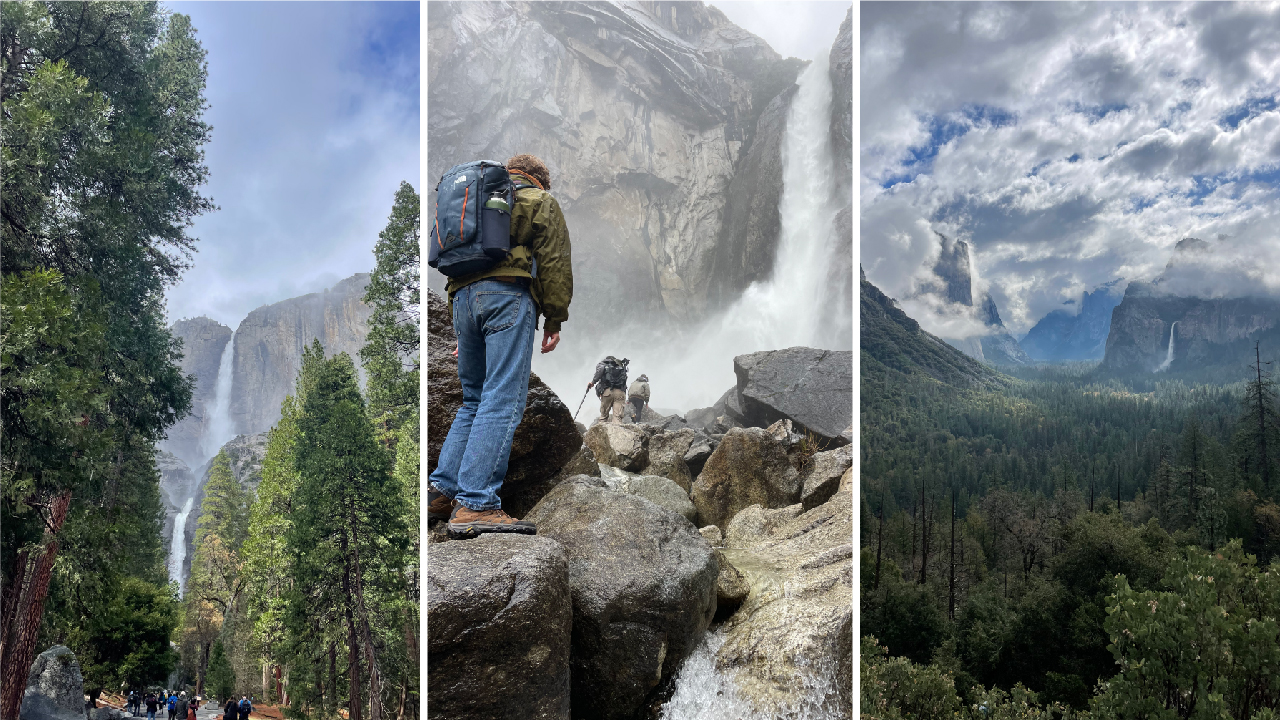
Emerging from a long tunnel on the road into Yosemite National Park, visitors suddenly get a chance to see the full scope of the valley. The Merced River flows through grassy fields and lush green forests, winding between some of California’s most iconic and dramatic peaks — El Capitan, Cathedral Rocks, Half Dome.
It takes your breath away, especially the first time you see it.
“I always thought of Yosemite as something out of another realm,” said Bakersfield native Mason Boerger, a Cal Poly communication studies student who visited the valley for the first time this spring. “And then you see all of it at once, and you just feel so small, but in the best way possible. You feel so insignificant, but also that you’re one piece of this huge thing that is … everything.”
Boerger was in Yosemite as part of the Sierra Sustainability Summit, a competition created by Cal Poly master of public policy student Shane Patrick. The event brought speech and debate teams from a dozen universities from around the nation to research and pitch ideas aimed at making America’s national parks more accessible and sustainable.
Patrick’s idea for the Sierra Sustainability Summit came out of a camping trip she took last year with her husband, Cal Poly communication studies lecturer and debate team coach John Patrick.
“We were sitting around the fire, and he said, ‘I’ve been to so many debate camps, and they’re all in classrooms that look exactly the same — I wish there was a debate camp that involved actual camping,’” she said. “I told him, ‘I can make that happen!’ And then, it just got way bigger than that.”
“The only vacation my family ever went on when I was a kid was up to the mountains, so it was always a place that was really close to my heart,” said Patrick. “There are so many places that are so special to California that are really threatened by climate change, unless we change our management strategy.”
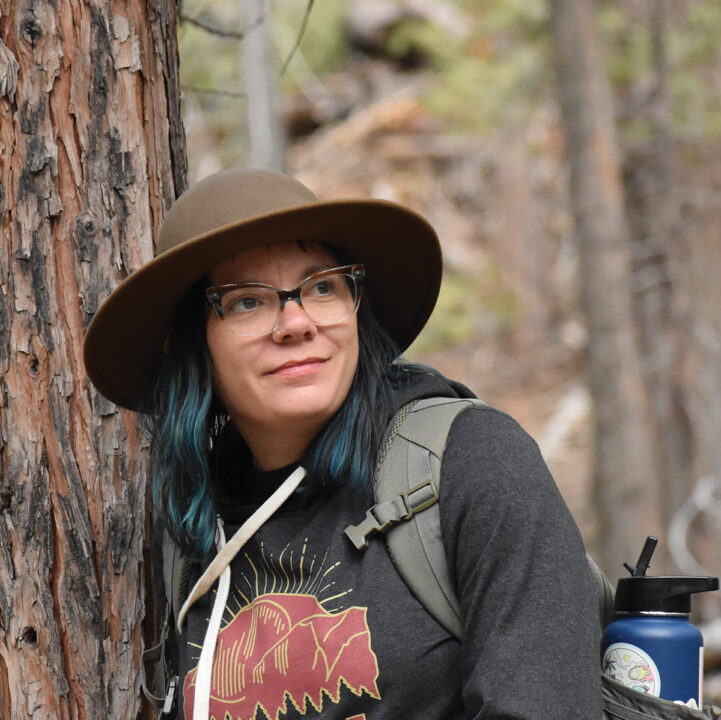
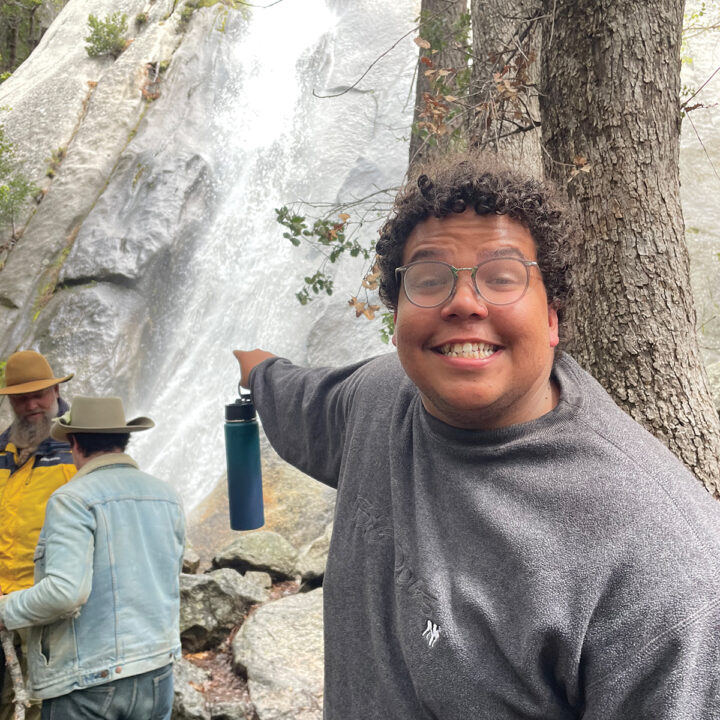
In addition to Cal Poly, the event involved students from colleges including Morehouse College, Gallaudet University, University of Vermont, Metropolitan State University of Denver, George Washington University, University of South Florida and Rochester University.
“It’s about getting out of the classroom and into the environment that you’re supposed to be learning about, so it’s very hands-on, very experiential,” said Patrick. “We’re listening to scientists give presentations, we’re listening to people who have gotten bills in front of Congress to do conservation work tell us about the struggles of doing so, and show us what they had to do to accomplish that.”
During the first two days of the event, students prepared for their presentations between guided tours of the park, led by park rangers. They explored some of Yosemite’s most spectacular vistas and heard from researchers and administrators about some of the park system’s biggest challenges.
They also heard a keynote presentation from Shelton Johnson, a longtime National Parks ranger who has spent decades advocating for more diversity in the national parks. Johnson has worked with former President Barack Obama and Oprah Winfrey in his decades-long effort to expand access to the great outdoors to more people of color.
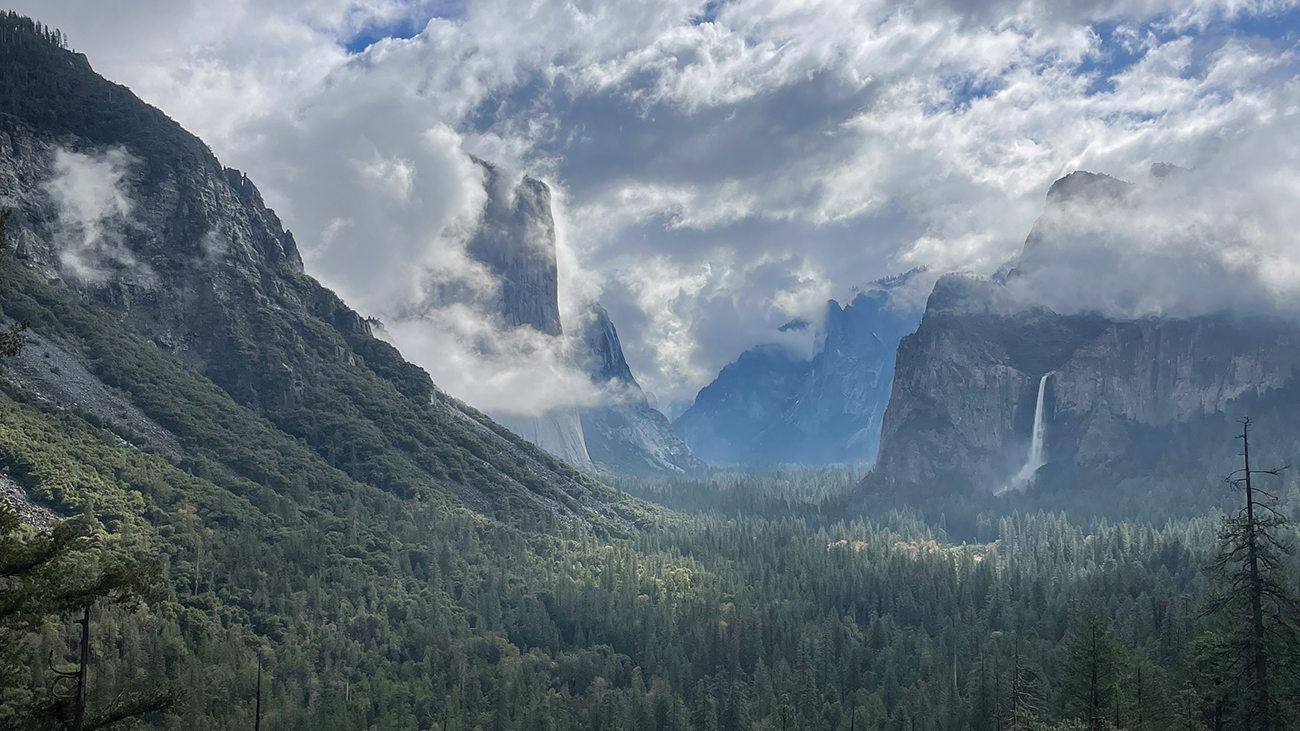
A view of the Yosemite Valley as students attending the summit explored under the guidance of park rangers.
The debate portion of the event was unique: Students were required to present their original ideas, take feedback from a panel of park administrators, outdoor advocates and policymakers, listen to other teams’ proposals, and then improve on their own proposals by incorporating elements from other teams’ ideas.
“The most important thing about how this differs from other forms of debate is that the judges are all working professionals in the topic of the debate, and there are people who have the ability to change policy,” Boerger said. “Afterwards, they talked to some of our students and told them, ‘That’s such a good idea — you guys won because I can take this to my boss today.’”
Each team was asked to propose an answer to this question: How can we increase equity of access to national parks while maintaining sustainable practices?
It’s a question that administrators at Yosemite have been grappling with for years, and especially since the COVID-19 pandemic. National park visitors tend to be white, affluent and suburban, leaving many communities without access to nature or a full appreciation of the value of natural resources.
Meanwhile, attempts to expand access to the parks — such as a pandemic-era practice of free park days at Yosemite — have led to unintended environmental consequences, like traffic congestion, trampling damage and litter.
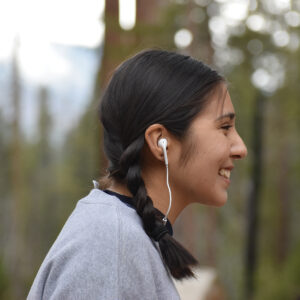
Debate team president Anahi Marquez.
Student proposals included adding more public transportation to parks; curbing or eliminating private vehicle use inside the parks; and developing outdoor education curricula and parks outreach programs for K-12 students in urban areas.
One of the top-ranked proposals involved developing a “library” of outdoor gear and apparel at Yosemite. It would allow visitors without the means to buy everything they needed to hike, camp and explore nature to borrow anything they might need to enjoy the experience anyway.
“National parks are really not that accessible to everybody,” said Anahi Marquez, a Cal Poly business administration student and captain of the university’s debate team. “I never really sat down to consider how difficult it is for a lot of people to get to go to national parks, especially if you didn’t grow up already predisposed to nature. There’s not really that drive to want to experience the big outdoors.”
The idea that individuals can make a difference was a key takeaway for many students who participated.
“I think a lot of the times as students, you don’t really think that you have a lot of power to make change — you leave that stuff up to experts or to people who you assume know more,” said Marquez. “But forcing yourself to think about issues that are currently going on in the world and proposing ways to improve them — you do have the ability to make change.”
Following a promising first run of this event, Patrick is looking for grant funding to continue and expand the competition. She hopes that events like this will help young people find their voice and advocate for things they care about.
Forcing yourself to think about issues in the world and proposing ways to improve them — you do have the ability to make change.
“I find that most young people really care about protecting nature, but they don’t necessarily know what to do about it,” she said. “Everybody wants California not to burn down, but how you actually go about changing the way that we treat our public lands is not something that a lot of people really learn. Learning how to advocate for changes that you want to see is really important.”
For some students at the summit, experiencing a national park for the first time had a significance that went beyond the policy considerations.
“I took home the importance of connecting with the sublime beauty of nature — that is something that I did not have growing up,” said Boerger, who grew up just three hours from Yosemite. “I don’t think I really understood the impact humanity has on nature and nature has on humans, because I was just so, so removed from it.
“My children will experience that. They’ll understand it,” he said. “And because of that, hopefully they’ll have this great appreciation that makes them understand why climate change matters, and why conserving nature is worth our time.”


